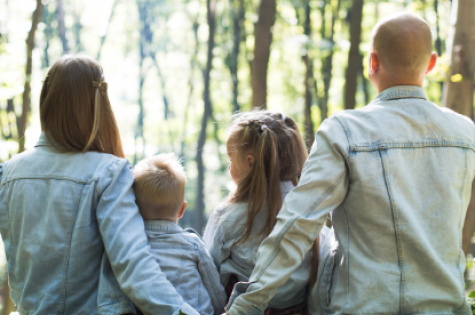The meaning behind mindfulness is quite simple – paying attention to the present moment. Practising mindfulness can give you the tools you need to cope with not just everyday life, but with tough times and times of high stress and anxiety.
You may be wondering how exactly that ties into parenting? As parents and caregivers, having the ability to manage emotions and behaviour is the best way to teach children the skills to manage their behaviour. There is no such thing as the perfect parent, and mindful parenting certainly doesn’t take this stance. What it does do is give you the tools you need to deal with your stress and anxiety and be present for your child.
Have you heard the saying “you can’t drink from an empty cup”? It’s a really great way to explain mindful parenting – you can’t be available in the way your child and family needs when you are stressed, overwhelmed or simply exhausted. Mindfulness allows you to bring your emotions to your attention without letting them take over your thinking.
How to Implement Mindful Parenting
It’s 2am, your child is wide awake (with no signs of going back to bed) and you have an 8am business meeting in the morning. It’s a situation most parents have experienced and been upset or angry towards their child. Their child may be teething, may be sick or may simply be going through a development period, but those feelings of upset and anger are an automatic response that happens when we are already stressed or exhausted. Simply put, our emotions are very easily triggered, and we can’t give our child the attention they need to get them back to bed.
There are two main steps you can take to ensure your feelings and emotions are kept in check. The first is to learn how to stop and take a moment to breathe before responding to your child’s action or behaviour with anger. By giving yourself that moment, you can focus on your breathing, and having a calmer mind to deal with your emotions and to deal with the situation.
Secondly, unlike adults, children don’t have the ability to regulate and manage their feelings and emotions. Before responding, take the time to listen to your child and their point of view. This then allows you the time to stop and think about the situation.
How Being a Mindful Parent Affects Your Child
The Mindful website notes study completed by researchers at the University of Vermont. This study surveyed over 600 parents of children between 3-17 and focussed on how mindfulness related to the well-being of their children.
“Parents reported on their trait mindfulness (how mindful they are in everyday interactions), mindfulness in parenting (how attentive, non-judging, and non-reacting they are in interactions with their children), and positive versus negative parenting practices (for example, expressing unconditional love and setting limits versus using harsh physical punishments). They also reflected on their kid’s typical coping styles—if they tended to become anxious or depressed or act out in disruptive ways, like hitting or yelling during difficult situations.
Analyses showed that parents who reported more mindful parenting engaged in more positive and less negative parenting behaviour, which was then linked to more positive behaviour in their kids—meaning less anxiety, depression, and acting out.”
Is it Important to Teach a Child Mindfulness?
Teaching a child to be mindful is an important skill that can help them throughout their life. As adults we know how stressful and busy life can be, and we often forget to fill our own emotional, health and wellbeing cups. But by teaching children mindfulness in the form of meditation, positive affirmations and self-awareness provides them with the support they need to experience the optimal mental and emotional health and wellbeing.
At Treasured Tots, our Wellness Program has three key focus pillars – resilience, wellbeing and awareness. The awareness pillar helps children become aware of their feelings, thoughts and actions and gives them the skills to understand their emotions, as well be able to exist in the present moment.
If you’d like to find out more about our Wellness Program and how it can benefit your child, make an appointment at one of our three centres to speak to us about the benefits and the outcomes we are seeing since implementing this program.
Being mindful is a life-long skill. Help your child develop the ability to be present with mindful parenting.








 Agree (0)
Agree (0) Disagree (
Disagree (








__small.png)










